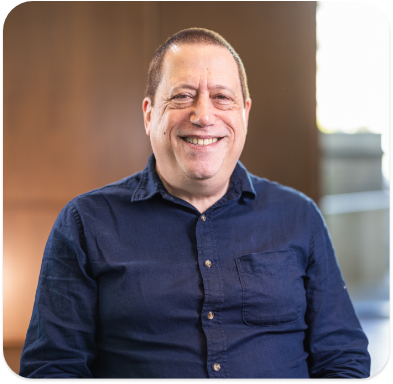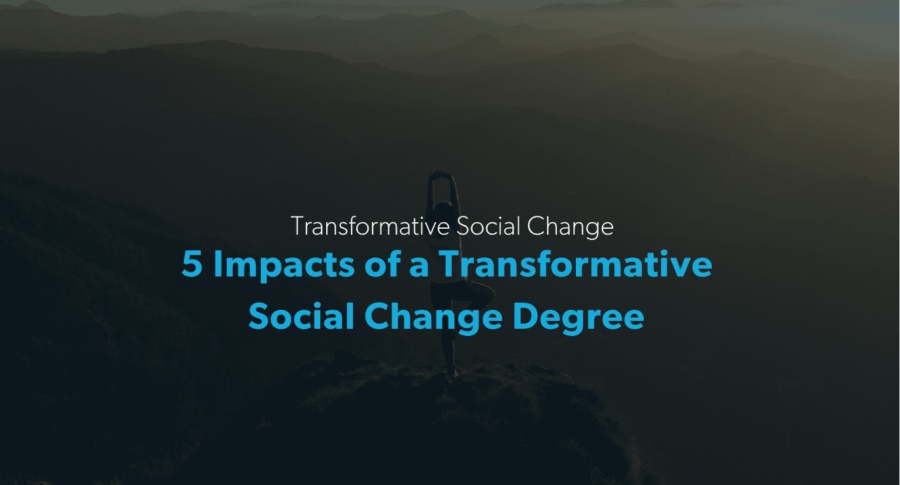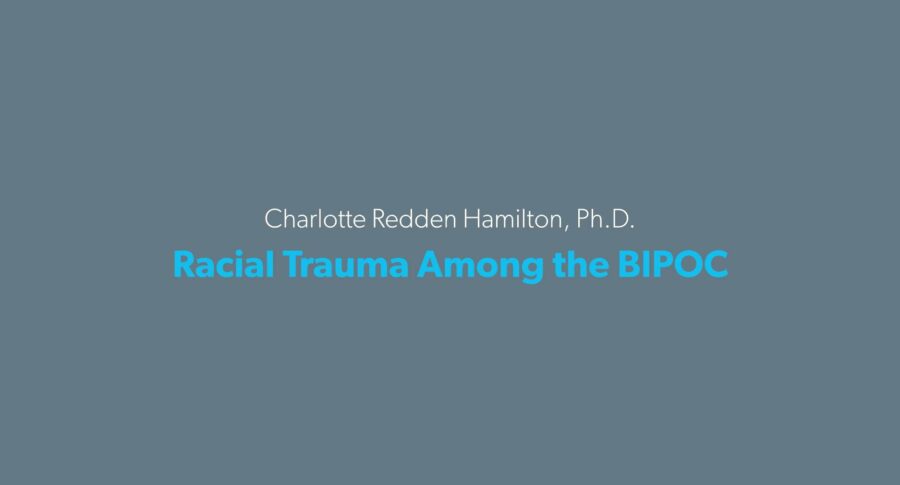As businesses expand globally, organizations are becoming more complex, creating a need for qualified organizational leaders who can develop innovative, adaptive, and sustainable systems that can function efficiently across national and cultural borders. Organizational leaders must be able to mobilize the energy and commitment of their people and coordinate teams while creating the conditions for everyone to contribute their full potential.
If you’re searching for an online Ph.D. organizational leadership program, our Ph.D. Managing in Organizational Systems Management is the program for you. This organizational systems program benefits professionals who are willing to join other future leaders in designing systems that meet today’s emerging needs. Combining research and practice, graduates of this organizational leadership degree program may choose to advance in their current positions, including management, consulting, human resources, or nonprofit leadership.
Today’s organizations are complex systems. Many have globally dispersed operations and all, regardless of size, are globally influenced every day. So organizations must be able to recognize and assess the forces that impact them. To thrive, they must use the energy and commitment of their people as collaborators who see themselves as leaders in transformation as the world’s adaptive demands escalate. Expertise in organizational management and organizational leadership is essential to meet such demands.
The Ph.D. curriculum equips professionals to meet such demands to envision and support the kind of systemic change needed for organizations to be resilient in their 21st-century milieu and to operate in a sustainable and socially responsive manner. It helps professionals develop innovative, successful systems that respond to the emerging global needs for sustainability while creating the conditions for all within an organization to contribute to their full potential.
More program information can be found in our academic catalog.
Program Components
Requirements
The Ph.D. in Managing Organizational Systems degree is 60 credits total. In addition to the research-focused courses, there are nine foundational courses in organizational leadership, organizational behavior, and organizational systems and professional ethics, and five elective courses, which can focus on specialized areas of study if a student wishes. Students usually take three courses per semester. The average time to complete the program is four to five years.
Residential Requirements
For completion of the Ph.D. in Managing Organizational Systems, participation in a twice-annual, five-day Residential Learning Experience (RLE) is required until enrollment in the dissertation begins (i.e., until after the completion of the three candidacy qualifying essays and successful completion of the essay oral exam).
Transfer Credit Policy
Transfer credits, to be considered, must have been (a) awarded by a regionally accredited university, (b) earned at the graduate level (master’s or doctoral), (c) earned at the grade level of B or better, and (d) evaluated by the department chair as equivalent to a degree course for which a substitution is appropriate and conceptually fit with the degree program course of study. While transfer credit policy may vary by degree and specialization, no more than 12 credits may be transferred.
Invest in Your Future
Saybrook University remains committed to keeping higher education affordable and accessible. Our Financial Aid Department is ready to offer guidance and support in determining suitable financial assistance tailored to your needs, including potential scholarship opportunities, grants, and more.
Cost
Saybrook wants you to have the information you need to make an informed decision about your academic and career aspirations. Our cost calculator provides an estimated cost of attending Saybrook to earn your Ph.D. in Managing Organizational Systems degree.
Online Ph.D. Organizational Leadership FAQs
Is this Ph.D. Organizational Leadership online?
Yes! Our Ph.D. Organizational Leadership is offered in a completely virtual format. This allows students worldwide to access our doctorate in organizational leadership program with skilled professors, advanced resources, and networking opportunities. Keep in mind that although all required coursework is done virtually, the Residential Conference (RC) may be required for certain courses with a residential training component.
How long does the online Ph.D. Organizational Leadership program take to complete?
The expected length of the organizational leadership degree program is four to five years with 60 earned credits.
What are some of the required courses for the Ph.D. Organizational Leadership at Saybrook University?
The Ph.D. Organizational Leadership has courses in a range of topics such as:
- Organizations and Social Systems Design
- Leading and Developing the 21st Century
- Managing Collaborative Systems in a Global Workplace: Teams, Collaborative Systems, and Networks
What specializations are there in the online Ph.D. Organizational Leadership program?
Specializations in this degree program include Humane Education, Leadership of Sustainable Systems, Educational Leadership, and Collaborative Strategic Management.
What career paths are available for graduates of the Ph.D. Organizational Leadership program?
Graduates of the online organizational leadership degree program are well-prepared for a variety of roles in business, education, public service, or social services. This includes positions in management, consulting, human resources, nonprofit leadership, and more.
Is the program flexible for students who are working?
Yes! Saybrook offers the Organizational Leadership degree program online, with flexible completion times. Choose from part-time to full-time course loads that fit your schedule. This degree program is perfect for working professionals Also, courses are offered online in an asynchronous format, giving you even more flexibility with your schedule.
Are there any in-person events offered for students who wish to participate?
Yes! Students enrolled in this online Ph.D. Organizational Leadership program must attend a Residential Conference (RC) if their courses require attendance.
Is a Ph.D. Organizational Leadership worth it?
Absolutely! Graduates from the online Ph.D. Organizational Leadership program are prepared for roles in business, education, public service, or social services. Graduates of this organizational leadership program will develop the skills to manage organizations, work with complexity, and lead in a time of transition.
Are there any scholarships or financial aid options available for the Ph.D. Organizational Leadership online program?
Interested applicants should contact Saybrook University's financial aid office to learn about the scholarships and financial aid options available to support students enrolled in the Ph.D. in Managing Organizational Systems online program. We are committed to making advanced education accessible and providing guidance on available financial assistance.
Sample Courses
Analyzing Complex Organizational Situations: A Systems Perspective
With organizations as the focus, this introductory organizational leadership course provides students with a first look at systems thinking as an approach to understanding complexity and identifying leverage points for intervention. Through both theory and practice, students will learn to recognize the systemic nature of complex phenomena (at the personal, organizational, and societal levels) and develop systems models as a way to develop deeper understanding and communicate more effectively the interconnectedness of a social system and its implications for improvement and transformation. Systems thinking is a foundation for both understanding the current state as well as for designing the future of complex social systems and institutions in the private, public, and social sectors. 3 credits
Leading and Developing the 21st Century
By exploring various classic and contemporary models of leadership, this organizational management course lays the foundational support necessary for learners to bridge leadership concepts to leadership practice. In this course, learners will evaluate the scaffolding that underpins the conceptual and perspectival leadership models traditionally advanced by both scholars and practitioners in the field of leadership. By critically probing these models, learners can re-envision and remodel core leadership theoretical constructs to successfully blend with their practice of leadership. 3 credits
Sociotechnical Information Systems and Distributed Organizations: Organizational Communication, Information Flow, and Technology
This interdisciplinary organizational systems course explores organizations as dynamic global enterprises that weave together people and technology into self-organizing, interactive networks. Students examine how digital technology has (a) changed the nature and dynamics of socio-technical systems, (b) transformed organizational information systems and enterprise-wide knowledge generation and application, and (c) reshaped organizational cultures, workplace operations, business partnerships, and supply chains. Central to this course is enabling students to develop their socio-technical organizational model and devise approaches to effectively design, implement, and manage technical information and communication systems that enhance organizational performance and work life. Intermediate level course. 3 credits
Catalog
Please refer to our academic catalog for more information on the Ph.D. in Managing Organizational Systems program.
Career Outcomes
According to the Bureau of Labor Statistics, the job outlook for qualified psychologists is expected to grow much faster than average. As public awareness builds regarding the connection between mental health and overall health, licensed clinical psychologists may find careers in education, nonprofits, social agencies, and private-sector organizations. They will be challenged to address the needs of many populations, including students, seniors, military personnel, veterans, prisoners, parolees, first responders, and those suffering from chronic illness and substance abuse.
Saybrook University prepares you to make an impact in a variety of high-demand careers. Below, you will find possible career options and salaries associated with this degree.
Data is pulled by a third-party tool called Lightcast, which includes data from sources including the U.S. Bureau of Labor Statistics, the U.S. Census Bureau, online job postings, and other government databases. The information below represents a regional and national career outlook related to this degree program*. Saybrook University is dedicated to assisting you in achieving your career goals.
*Many degree programs are intended to fulfill licensure requirements in specific states. The data shown here may not represent the state where you currently reside. For more information on how this program is applicable to the requirements of your state, please speak with your admissions specialist.
University Learning Experience
Our Ph.D. in Transformative Social Change program is a hybrid online program. While the core of this program is completed asynchronously, there are some required synchronous, online features designed to deepen your educational experience. We call this a Virtual Learning Experience (VLE). In addition to the VLEs, you will begin your studies with a virtual Welcome Week. Welcome Week activities, including a program orientation, are held online during the week before the start of fall and spring semesters. You are also required to attend Community Learning Experiences (CLE), in-person gatherings once every two years, where the entire Saybrook community comes together to connect face-to-face.

Transformative Social Change Faculty
Saybrook’s Transformative Social Change faculty are practitioner-scholars dedicated to advancing their field through continued practice and comprehensive instruction. Meet some of our faculty members below.

- Project Director/Co-Author, The Choices and Consequences Evaluation
- Member, Academic Council of the American Friends of Combatants for Peace
- Specialist in globalized movements for social justice, human rights, peace and democracy
- Writing published in Common Dreams, the Los Angeles Times, Tikkun Magazine, UNESCO International Clearinghouse on Children and Violence on the Screen, among others
UNBOUND: Transformative Social Change
In today’s world of social, economic, and environmental turbulence, it can feel as if everyday citizens are left to fend for themselves. Despite these concerns, there are many around the world who are working for positive change. This is the focus of Saybrook University’s programs in transformative social change. Hope does exist, and Saybrook is eager to empower those who are ready to act on it, providing you with the capabilities to lead the transformations this world needs.


Saybrook University Appoints Alumna and Social Justice Advocate Ellen Helms to its Board of Trustees

Ready to Take the Next Step?
Submit an inquiry and one of our admissions specialists will connect with you to answer your questions and guide you through next steps.
























